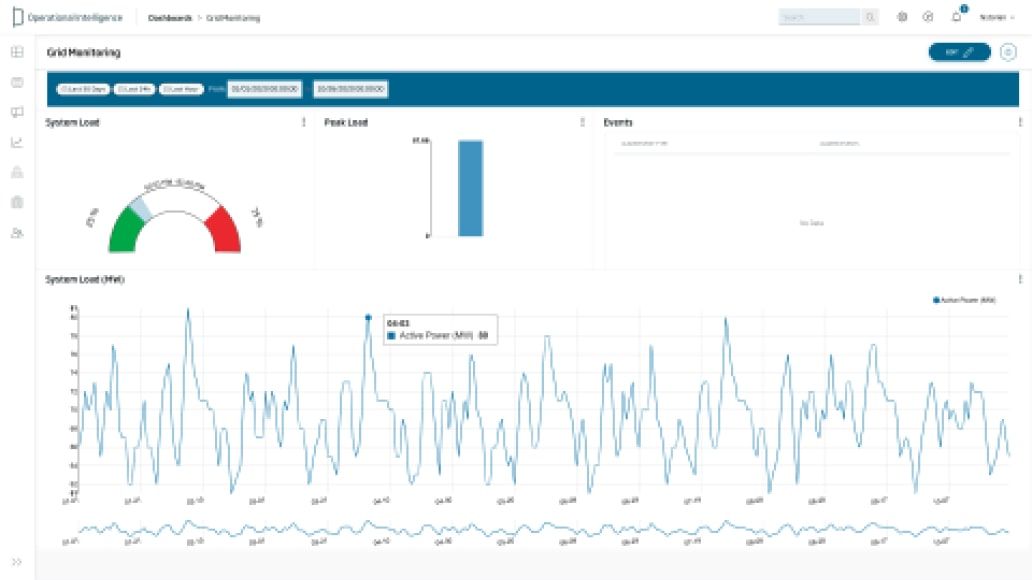Intelligence
Intelligence simplifies and enables the IT/OT convergence occurring in the utility industry in a single platform that ingests, processes, contextualizes, analyzes, and visualizes technical data from any source.
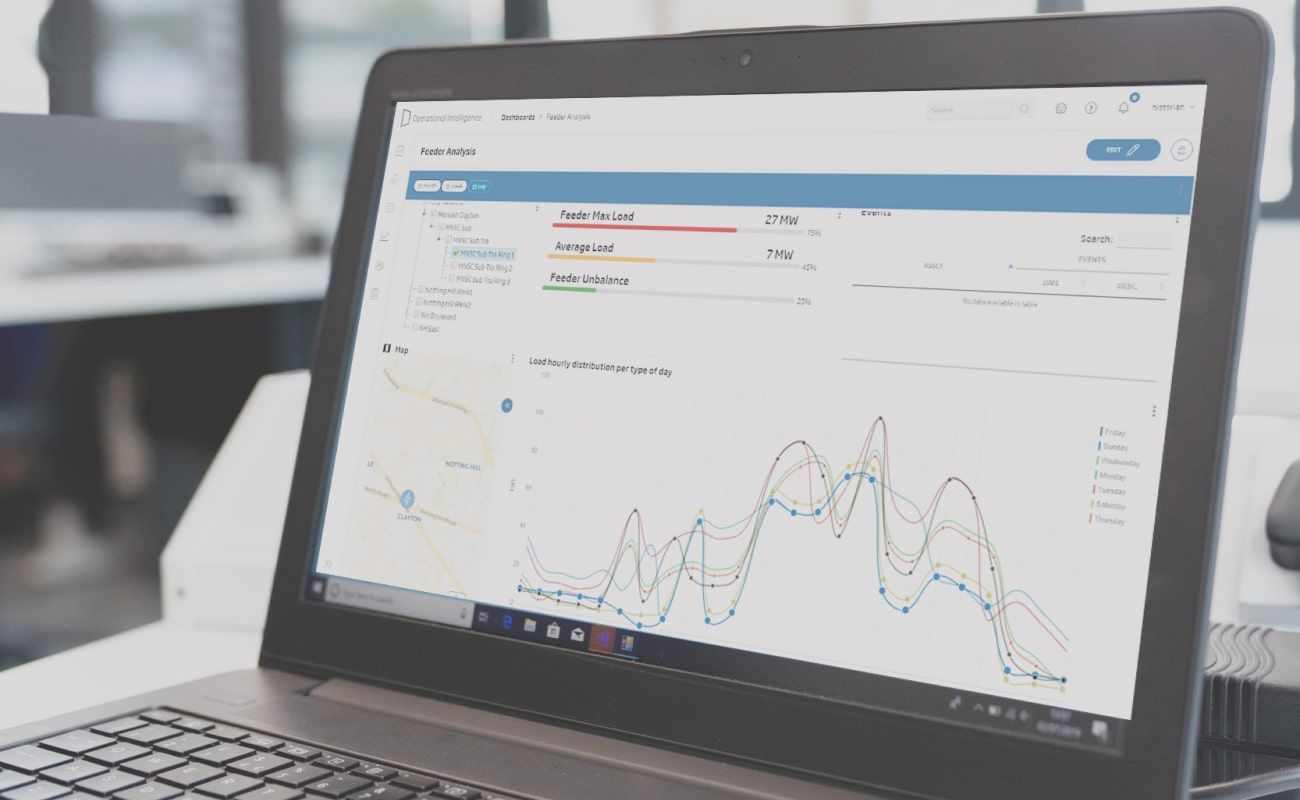
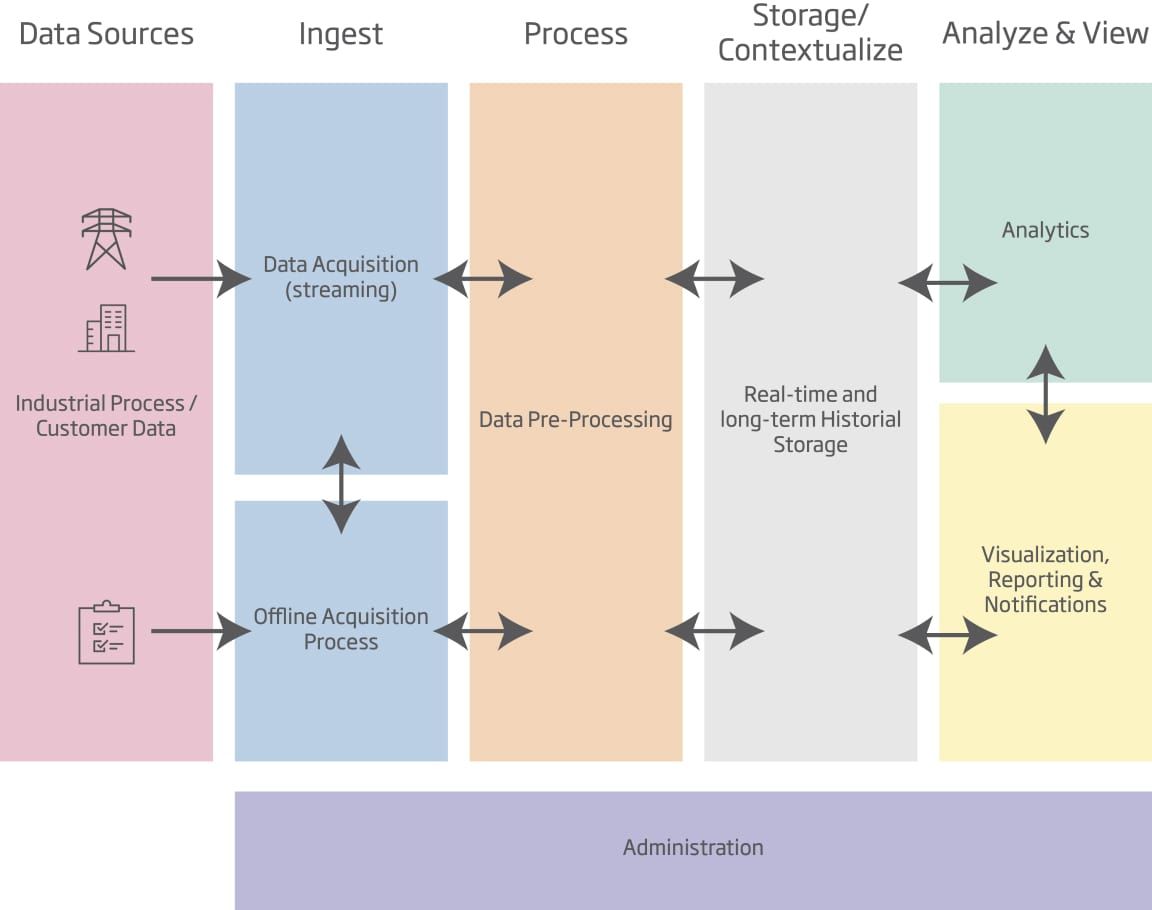
Enrich, Improve, & Extend Data
Utilities are looking for solutions that allow them to not only take technical data from many different sources in the company, but to share it throughout the organization to improve overall efficiency.
This platform enriches the information managed by other technical systems already in place and extends the knowledge of the operations of existing assets. From engineering planners being able to access years of historical SCADA data to detect trends, to the root-cause analysis of outages or the historical patterns of feeder loads, the use cases are seemingly endless. On-premise or cloud deployment, and compatibility with the most common IaaS (MSAzure, AWS, Google CP) allow for maximum flexibility and adaptability.

Ingest Data from Many Sources
One common platform handles the collection of timeseries data from real-time OT systems (ex. SCADA or ADMS), from other IT systems (EAM, GIS, WFM, etc.) or from batch files. Leveraging several standard protocols typically used in the utility industry (Modbus, OPC, IEC102, IEC104, ICCP, DNP3.0, OPC, DDS iSPEED Pub/Sub, ZIGBEE) as well as others commonly used in IoT (MQTT, KAFKA, RESTData, etc.) to collect data from field devices and from Behind-the-Meter assets.

Store and Contextualize Data
The platform organizes and gives context to data being collected and stored as long-term historical asset-centric BigData database.
Data (raw and processed) is stored as time series, as last value, or as digital signals and associated to physical assets and their technical characteristics (capacity, location, size, manufacturer, etc.).
Security, accessibility, and visibility of stored data can all be administered from a user-friendly console.

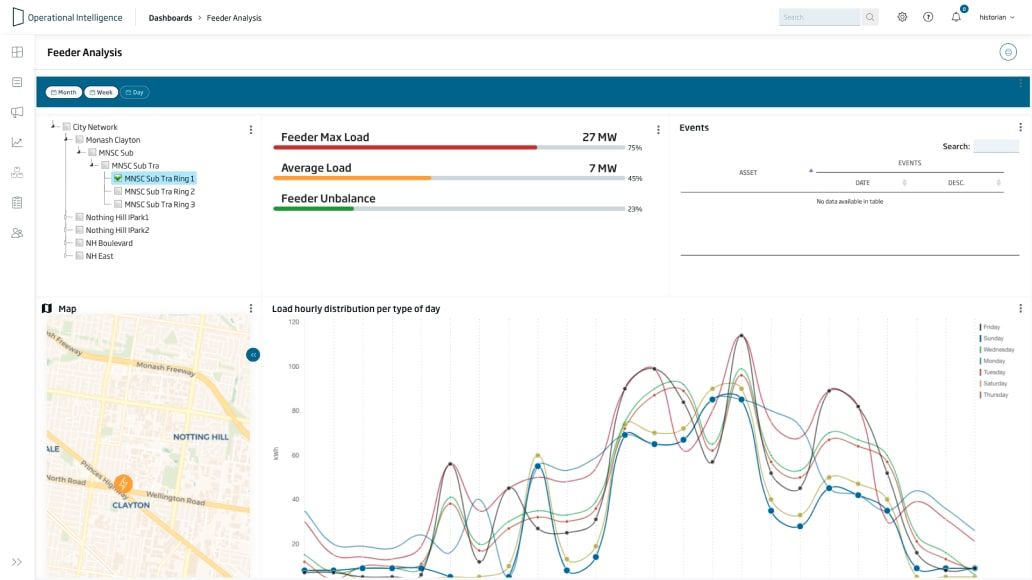
Analyze Data
Finding correlations among data signals, spotting patterns to forecast performance of assets, comparing data values with the expected ones, are some of the actions that can be performed in the data analytics.
This module provides data scientists with a multi-user web environment to develop analytical models of the stored data using a set of possible languages (Python, Spark, R, SQL, etc.).

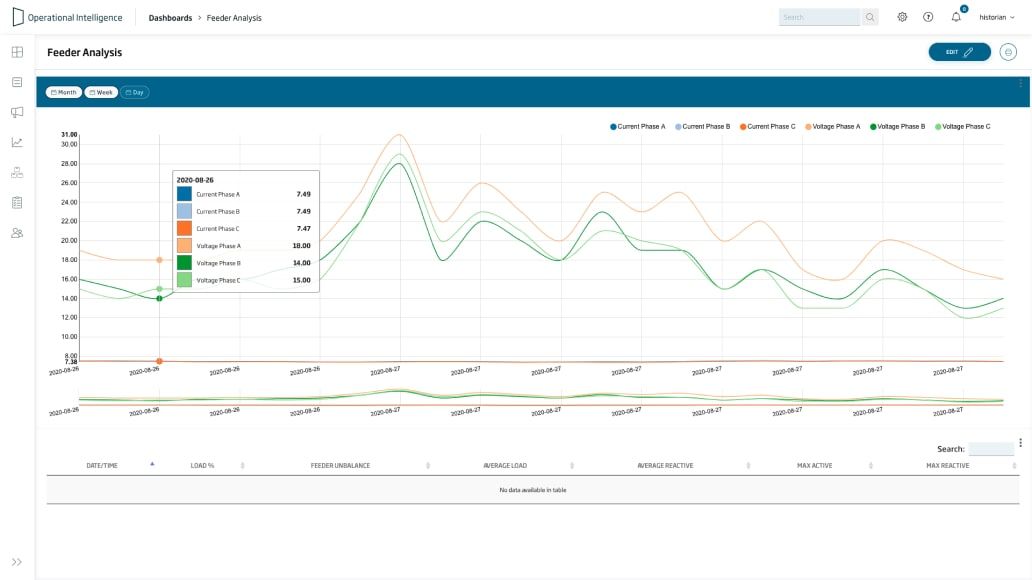
Visualize Information
Powerful ways to visualize data through dashboards composed of dynamic widgets, templates, graphical displays, and reports.
Users can create notifications or automatically generate reports from these dashboards.

